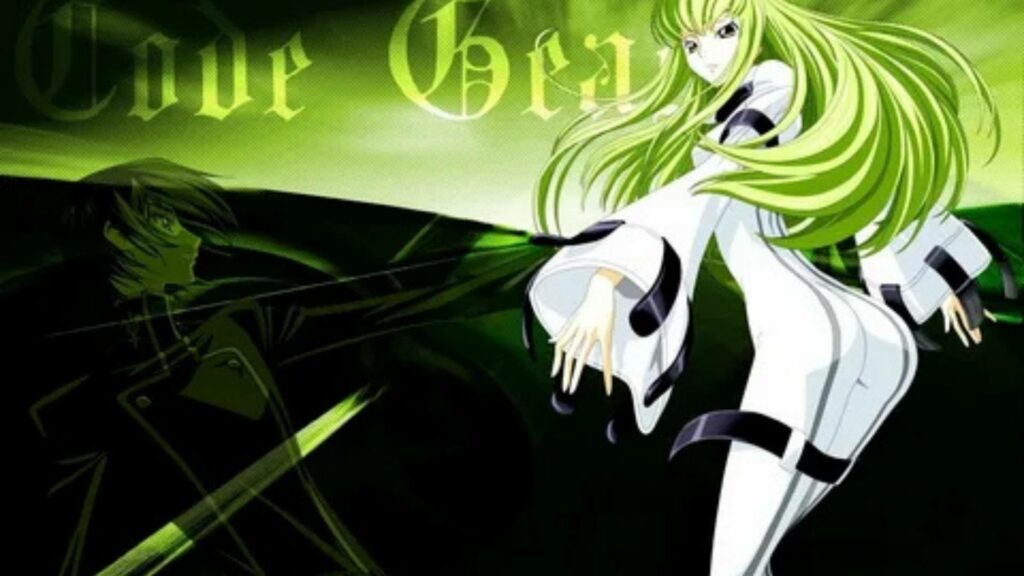Code Geass: Lelouch of the Rebellion, directed by Goro Taniguchi and brought to life by Sunrise studios, not only pushed the boundaries of the mecha anime genre during its 2006-2008 run but also stood out as a work that masterfully handled complex political themes and moral gray areas. Set in an alternative history where the Britannian Empire has occupied Japan, the anime deeply examines concepts of imperialism, terrorism, revolution, freedom, and power. How do these political messages reflect on today’s world?
Critique of Imperialism and Colonialism
Perhaps Code Geass’s most explicit political message is its harsh criticism of imperialism and colonialism. In the story, the Britannian Empire has occupied Japan and changed the country’s name to “Area 11,” stripping the Japanese of their identity, culture, and even their names. The native population is referred to as “Elevens” and treated as second-class citizens.

This situation is a striking allegory for colonial practices throughout history. Britannia’s policy reflects real-world colonial tactics such as erasing the native population’s cultural identity, exploiting natural resources, and establishing control through military force. For example:
The prohibition of Japanese people speaking their own language recalls cultural genocide policies applied in many colonial periods
The depiction of the Shinjuku Ghetto evokes areas where native populations were forcibly relocated during colonial eras
Valuing Japan for its Sakuradite mines demonstrates the economic motivations underlying colonialism
Today, while official colonialism has ended, economic colonialism and cultural hegemony remain important issues in world politics. The efforts of developed countries to control resources in less developed countries continue to reflect the system that Code Geass criticizes.
The Terrorist vs. Freedom Fighter Dilemma
One of the most frequently addressed themes throughout the anime is the fine line between “terrorist” and “freedom fighter.” As Lelouch fights against the Britannian Empire, he establishes the Black Knights organization under the identity of “Zero.” This organization is labeled as terrorist by the Britannians but seen as freedom fighters by the Japanese.
This dilemma is extremely relevant in today’s world. Whether someone is a terrorist or a freedom fighter often depends on perspective. Code Geass shows how these labels are used as tools of political propaganda and how the winners have the power to write history.
Lelouch’s methods are constantly questioned morally. His tactics, which cause the deaths of innocent people, disturb the viewer even if done in the name of “the greater good.” This is the anime version of the question debated today: “Do the ends justify the means?”

The Relationship Between Power and Corruption
“Absolute power corrupts absolutely” is a theme deeply explored in Code Geass. Lelouch’s transformation after obtaining the power of Geass shows the effects of power on human psychology. This power, initially used for noble purposes, gradually changes Lelouch and causes him to become merciless in some of his decisions.
Similarly, the Britannian Empire’s Social Darwinism-based philosophy of “the strong live, the weak die” is the institutional reflection of power’s corrupting effect. Charles zi Britannia’s worldview resembles an extreme interpretation of power-focused realist international relations theories.
In today’s world, how power balances are shaped and how powerful actors use this power remains at the center of international politics. The influence of great powers over smaller countries and the use of economic and military power are dynamics that Code Geass critically examines.
Identity Politics and Nationalism
The Japanese people’s attachment to their own identity and rejection of the identity imposed by Britannia in Code Geass is a powerful example of identity politics. Being “Japanese” represents not just a nationality but also a form of resistance.
On the other hand, the anime also addresses the dangers of nationalism. Extremely nationalist characters like Colonel Kusakabe harm their own cause by taking innocent civilians hostage. This shows how nationalism can go to extremes and be used to justify violence.
Today, nationalism and identity politics are on the rise worldwide. From Brexit to the rise of nationalist movements in various countries, the power of identity-based politics is increasing. Code Geass contributes to a current discussion by examining both the positive (cultural preservation) and negative (extremism and violence) aspects of such movements.
Technological Development and Ethical Boundaries
Throughout the anime, the ethical boundaries of technological progress are constantly questioned. War machines like Knightmare Frames, experiments conducted on C.C. under the Code-R project, and ultimately the Ragnarok Connection raise the question of whether technology and science are being used for the benefit or control of humanity.
Similar ethical debates are taking place today in areas such as artificial intelligence, biotechnology, and cyber warfare. The rapid advancement of technology creates the problem that ethical standards and regulations cannot keep pace with this progress. Code Geass serves as a warning about the potential dangers of technological development.

Media Manipulation and Propaganda
Zero’s skillful use of media and Britannia’s spread of its own propaganda address the theme of media manipulation in Code Geass. The character of Diethard Reid shows how blurry the line between journalistic neutrality and propaganda can be.
In today’s era of “fake news,” this theme is extremely current. Social media, disinformation, and propaganda have become powerful weapons in the modern political arena. Code Geass teaches viewers to evaluate media messages with a critical eye.
The “Zero Requiem” Plan and Utopian Thinking
The “Zero Requiem” plan implemented by Lelouch at the end of the series—making himself appear worse than a tyrant to draw all hatred upon himself and then being killed to achieve world peace—is a complex example of utopian thinking.
This plan reflects the political concept known as the “unifying enemy theory”: People tend to unite against a common enemy. By positioning himself as this enemy, Lelouch unites the world.
In today’s world, utopian thinking is often met with skepticism, but the idea of global cooperation in the face of common threats (such as climate change) is still important. Code Geass offers a radical proposal for how such cooperation might be achieved.

Conclusion: Complex Political Messages and Their Reflections Today
One of the most impressive aspects of Code Geass is its avoidance of simple “good vs. evil” narratives and its presentation of political messages in a complex, multi-layered manner. Rather than imposing a particular political view on viewers, the anime shows different perspectives and asks difficult questions.
The political messages of the series still remain valid today:
Imperialism and neo-colonial practices still influence world politics
The use of the “terrorist” label for political purposes continues
The relationship between power balances and corruption continues to be seen in modern politics
Identity politics and nationalism are on the rise
The ethical boundaries of technological development are constantly debated
Media manipulation and propaganda have become even more powerful in the digital age
Code Geass presents these themes not just as an entertaining anime but as a work that encourages deep political thinking. Lelouch’s saying “To destroy the world is to create the world” reflects the reality that change sometimes needs to be radical, but this always raises complex moral questions.
Perhaps Code Geass’s most important political message is that no system is perfect, and every political movement, no matter how idealistic, can have unexpected consequences. This is an important lesson to remember in today’s polarized political environment.





